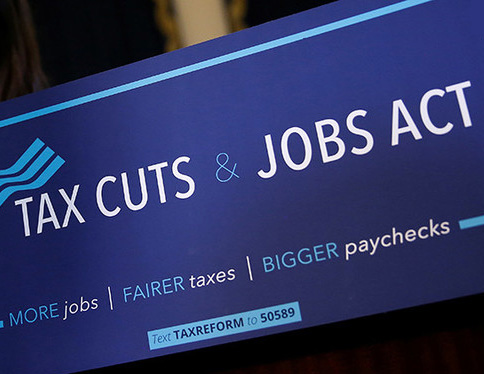
2018 Charitable Giving Soars Thanks to Tax Reform
June 19, 20195 Steps for Dealing With Problem Employees
July 2, 20196 Reasons To Pay Board Members

Pay Board Members? Last week, with great fanfare and applause, NANOE honored their Board Members with financial compensation for their service to the charitable sector. NANOE’s president, Louis Fawcett, issued checks in the amount of $1,000 for their board meeting held during NANOE’s Convention & Expo in Charleston, SC. During his presentation Fawcett posed the question, “You may not pay your board members but if you did…WHICH ONES WOULD YOU KEEP?”
The crowd responded with both laughter and delight.
Jack Horak, of the TANGO Alliance was in attendance, and shared, “This is a sweeping reversal of sector orthodoxy — which presupposes that directors donate both their time and their money to the organizations they serve. Consequently, it’s no surprise that some of the more prominent sector voices were quick to dismiss NANOE’s message. NANOE’s paradigm turns conventional wisdom on its head so criticism in defense of the status quo is expected. However, after nearly 40 years as a legal and business advisor in the sector, I respectfully disagree with NANOE’s critics. I suggest that if they take their analysis to a deeper and broader level they will find considerable insight in NANOE’s suggestion, and perhaps conclude, as I have, that the paid professional board model may be the optimal choice for some, but not all, organizations.”
NANOE pays their board members $1,000 a day for in-person meetings, plus travel reimbursement, and $300 an hour for board meetings held by phone.

The Center for Association Leadership makes the point, “Although not the norm, compensating board members is legal in many circumstances and may be beneficial to the organization. If you’re considering this configuration check your by-laws and State requirements.”
Here’s 6 Reason Why Charities Should Pay Board Members:
- Compensation promotes professionalism rather than amateurism.
- Compensation attracts the most qualified and able individuals.
- Compensation awards, in a tangible way, valuable personal time and contributions made for the cause.
- Compensation promotes more risk taking.
- Compensation stimulates better attendance at board and committee meetings.
- Compensation holds board members more accountable for performance.
If You Pay Board Members, Consider These Tips:
- Establish policies with clear objectives, and indicate how compensating the board of directors will benefit the organization.
- Determine what compensation is considered reasonable, and review the compensation regularly.
- Determine which board members will be compensated (the chair, board officers, or all board members).
- Determine how the compensation will be structured (i.e., flat fee, retainer, per diem, formula), how it will be distributed, and the tax implications.
- Determine how much each board member will be compensated and whether the chair will be paid more than others.
- Careful attention to legal requirements and the details of any payment arrangements will ensure that nonprofits make informed decisions and set responsible policies for board compensation.
6 Reason Why Charities Should Pay Board Members was written by author, speaker and fundraiser James P. LaRose, CNE, CDE, CNC. He’s the author of RE-IMAGINING PHILANTHROPY: Charities Need Your Mind More Than Your Money™ written to philanthropists who give nonprofits what they really need…enterprise models that grow capacity and achieve financial sustainability.
Jimmy LaRose is also a contributing author at InsideCharity.org
